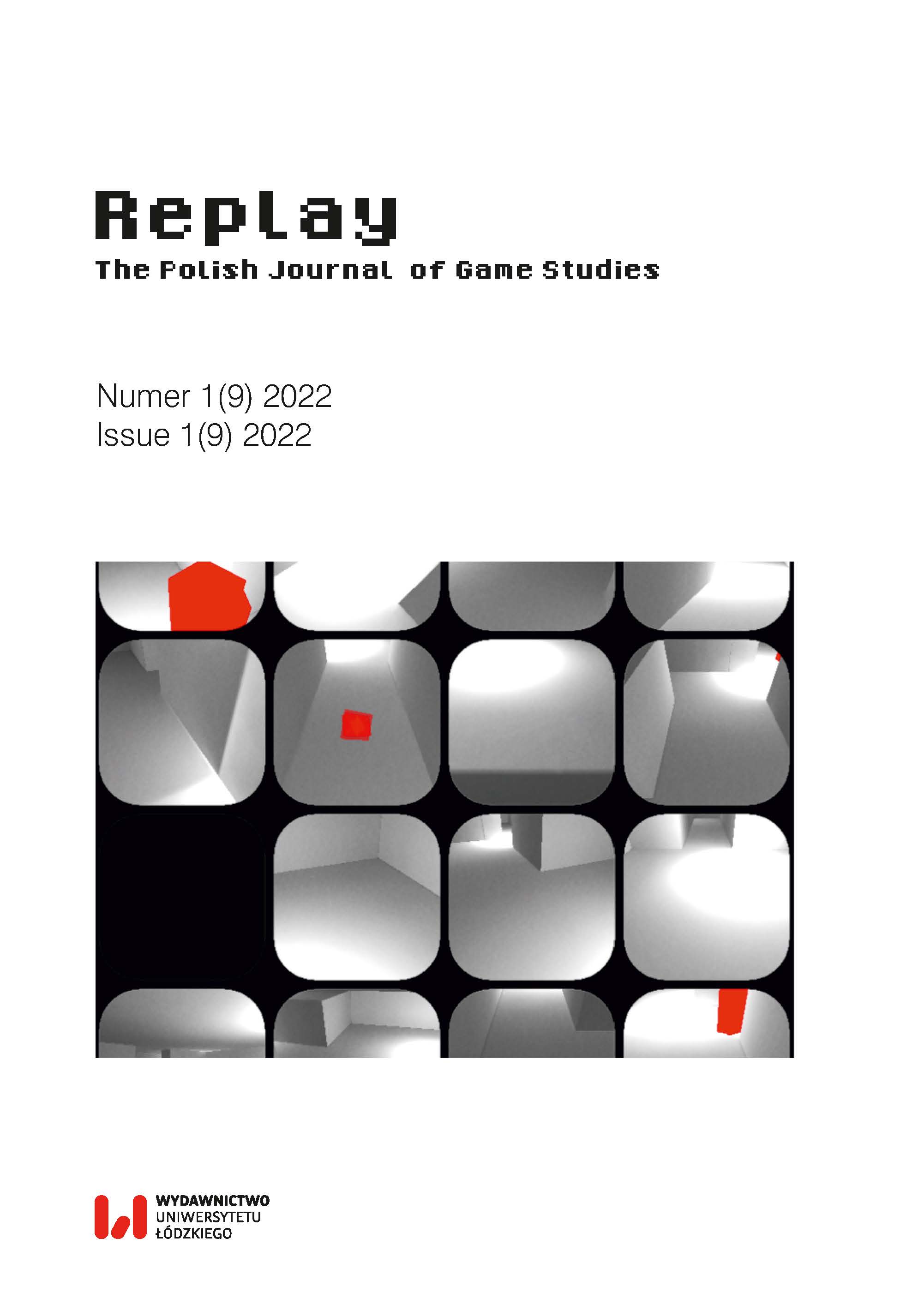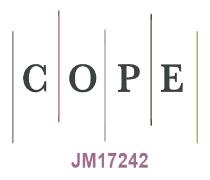A gamebook enriched with the literary past – an analysis of the paragraph game “Dziady Część V. Dziady, które nie spieprzają” by Mikołaj Kołyszko
DOI:
https://doi.org/10.18778/2391-8551.09.03Keywords:
gamebooks, 'Dziady', pastiche, parody, Adam Mickiewicz, immersionAbstract
This article addresses issues showing the interconnectedness of the postmodern categories of pastiche and parody in relation to gamebooks. The first part of the text is a cross-section of the most important theoretical issues for the subsequent analysis of the gamebooks, starting with the presentation of their definitions, the most popular genres, and the basic division of such games. In relation to the issue of gamebooks, I also draw attention to the increasing intermediality of the contemporary works, as well as the importance of second-person narration. I also mention the genre of art games and briefly cite the work of one of their representatives, Anna Anthropy. I then discuss the postmodern categories of pastiche and parody and what they mean in relation to the past-present relationship. In the context of parody, I also mention Gérard Genette’s division of transtextual references between works. All the above-mentioned issues will be referred to when analysing the gamebook, which is a ‘semi-official’ continuation of Mickiewicz’s Dziady, combining a parodic take on folk culture with contemporary new media elements.
References
Bernacki, P. (2017). Gry paragrafowe – relikt przeszłości czy nadzieja na przyszłość?, Folia Bibliologica, 49.
Google Scholar
Bourdieu, P. (2005). Dystynkcja. Społeczna krytyka władzy sądzenia, tłum. P. Biłos, Warszawa.
Google Scholar
Brenskott, K. (2019). Od adaptacji, przez remake i sequel do crossoveru, czyli historia pewnej przeklętej kasety wideo. W Perspektywy Ponowoczesności, t. 9, red. K. Olkusz. Wrocław: Ośrodek badawczy Pacta Ficta.
Google Scholar
Costikyan, G. (2007). Games, Storytelling, and Breaking the String. W In Second Person: Role-Playing and Story in Games and Playable Media, red. P. Harrigan, N. Wardrip-Fruin. Cambridge: MIT Press.
Google Scholar
Dziamski, G. (2017). Sztuka wysoka i niska. Dyskurs: Pismo Naukowo-Artystyczne ASP we Wrocławiu, 23.
Google Scholar
Eco, U. (1987). Dopiski na marginesie Imienia róży. W Imię róży, tłum. A. Szymanowski, Warszawa.
Google Scholar
Genette, G. (1982). Palimpsesty. Literatura drugiego stopnia, tłum. A. Milecki. Gdańsk: Wydawnictwo słowo/obraz terytoria.
Google Scholar
Godwin, A. (2019). The Culture of Pastiche, A Defense of Jamesonian Postmodern Depthlessness.
Google Scholar
Hutcheon, L. (1991). Historiograficzna metapowieść: parodia i intertekstualność historii, tłum. J. Margański, Pamiętnik Literacki, 82.
Google Scholar
Hutcheon, L. (2007). Teoria parodii. Lekcja sztuki XX wieku, tłum. A. Wojtanowska, W. Wojtowicz. Wrocław: Oficyna Wydawnicza ATUT – Wrocławskie Wydawnictwo Oświatowe.
Google Scholar
Jameson, F. (1998). The Cultural Turn. Selected Writings on the Postmodern 1983–1998. New York: Verso.
Google Scholar
Jaworski, K. (2015). Wybór należy do Ciebie… Gry paragrafowe – druga młodość zapomnianej formy rozrywki. Studia Filologiczne Uniwersytetu Jana Kochanowskiego, 28.
Google Scholar
De Kloet, J., van Zoonen, L. (2007). Fan Culture – Performing Difference. W Media studies: Key issues and debates. London: Rotledge.
Google Scholar
Kołyszko, M. (2021). Dziady część V. Dziady, które nie spieprzają. Wydawnictwo Otwarte.
Google Scholar
Perzyńska, A. (2013). Opowiadać dalej – fanfiki, mashupy, uniwersa – alternatywa i konwergencja. W Problemy konwergencji mediów, red. M. Kaczmarczyk, D. Rott. Sosnowiec–Praga: Oficyna Wydawnicza „Humanitas”.
Google Scholar
Strużyna, A. (2014). Artystyczne gry Anny Anthropy, Homo Ludens, 6.
Google Scholar
Wake, P. (2016). Life and Death in the Second Person: Identification, Empathy, and Antipathy in the Adventure Gamebook, Narrative, 24(2).
Google Scholar
DOI: https://doi.org/10.1353/nar.2016.0009
Anthropy, A. (2011). Defend the Land.
Google Scholar
Anthropy, A. (2012). Dys4ia.
Google Scholar
Felluga, D. Modules on Jameson: On Postmodernity. Introductory Guide to Critical Theory. http://www.purdue.edu/guidetotheory/postmodernism/modules/jamesonpostmodernity.html (data dostępu: 20 stycznia 2023).
Google Scholar
https://wspieram.to/dziady?pokaz_projekt=1&active_tab=aktualizacje#a10072 (data dostępu: 20 stycznia 2023).
Google Scholar
Downloads
Published
How to Cite
Issue
Section
License

This work is licensed under a Creative Commons Attribution-NonCommercial-NoDerivatives 4.0 International License.










